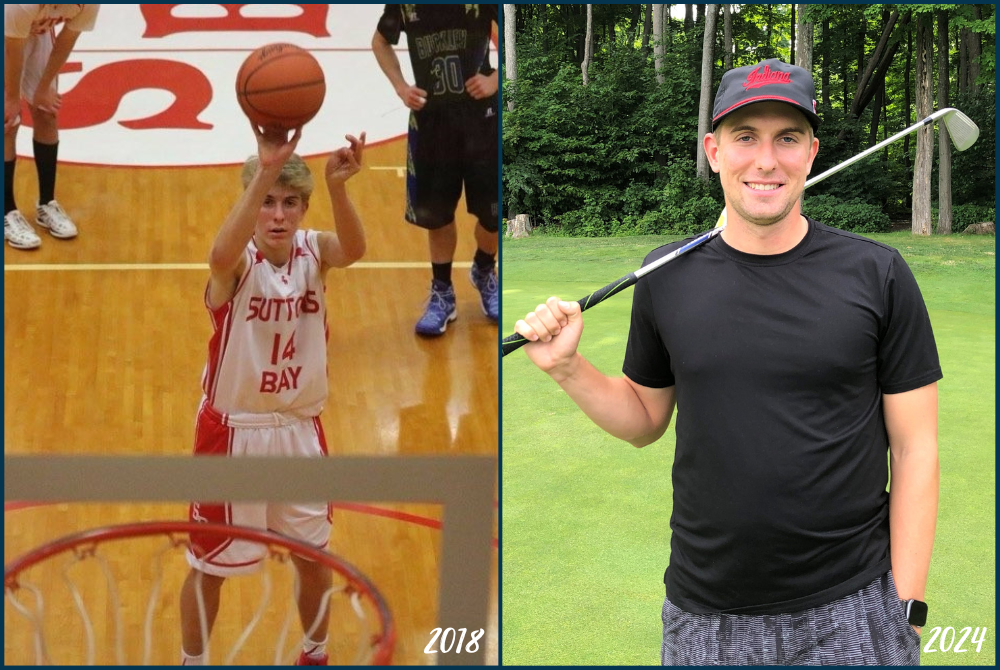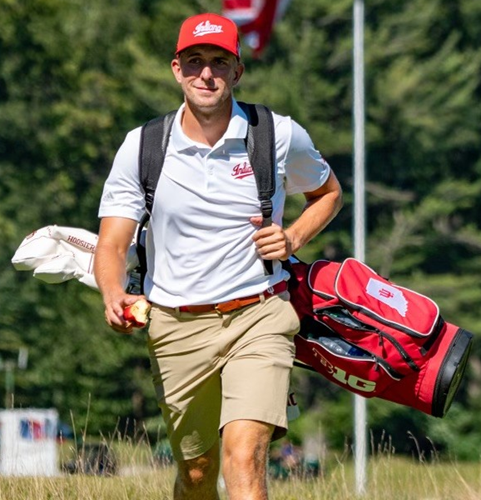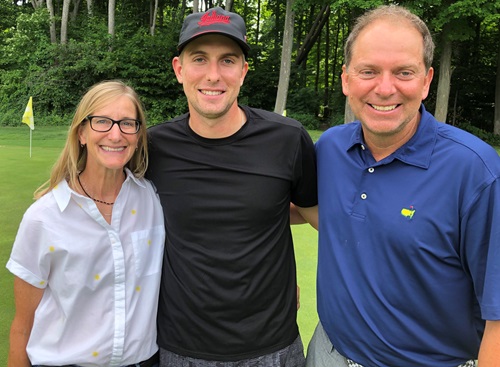
Keep on Coaching
February 1, 2013
By Geoff Kimmerly
Second Half editor
A few weeks ago, I finally got my first chance this season to watch a friend coach his basketball team. After guiding some others at the lower levels, this is his first time running the varsity – something he wasn't sure he wanted to do with a 1-year-old just learning to walk, but a challenge he ended up taking on to the benefit of all those involved.
Simply put, he’s good. I've seen a lot of teams and a lot of coaches over the past 15 years, and although I wouldn't know much of what to do if I were walking the sideline, I felt pretty qualified in telling him I was impressed – even if he didn't buy that I was offering an unbiased opinion. The best news is he’s gone from not sure about this a few months ago to talking about next season.
We know, at least anecdotally, that coaching continues to get more challenging. The time commitment has grown substantially to make running a program a year-round endeavor in a lot of sports at a lot of schools.
That commitment – especially for coaches with children of their own – was a main reason referred to in a New Haven Post-Chronicle story Saturday that noted 23 football coaching openings in Connecticut at one point this offseason. That state has 146 football teams – meaning roughly 15 percent will have new leaders this fall.
And that got me thinking about my friend, about how glad I am he’s given this a shot, and how I've seen so many others either not do so, or not stick around long despite having some pretty nice success.
A study published last winter in Interscholastic Athletic Administration magazine – a product of the National Interscholastic Athletic Administrators Association – noted some predictable results of a study that sought to determine the biggest challenges faced by first-year high school coaches.
The toughest according to the study was balancing the demands of coaching and teaching, experienced by nearly half the respondents – 98 percent of which coached high school teams and 81 percent of which are teachers.
The next six reasons all were noted by at least 30 percent of those in the study – personal fatigue, securing community support, securing and caring for facilities and equipment, parental contact, keeping non-starting players motivated, dealing with schedule interruptions and motivating athletes to achieve consistent, peak performance.
Nothing there is earth-shaking, and most if not all of these challenges are faced by high school coaches regardless of how long they've been in the field. But I got a little more perspective from some of the 32 items that ranked as least challenging to the first-year leaders – keeping in compliance with state and league regulations, dealing with substance abuse issues, teaching sport skills and creating a positive team atmosphere – things that seem most important, and yet appear to be easiest to do. I’m not sure what that tells us – but I think it tells us something.
Click to check out the entire three-page breakdown of the study, plus the researchers’ recommendations to remedy some of what first-year coaches face.
Giving back to Saginaw
I love reading about high-level athletes – like a star-studded group of alums from Saginaw – giving back to where they got their starts.
Pittsburgh Steelers star LaMarr Woodley made a big impact before the start of this school year by donating $60,000 to cover all participation fees for athletes in his former school district. The Saginaw News’ Hugh Bernreuter writes today about how Woodley (Saginaw High), the Philadelphia 76ers’ Jason Richardson (Saginaw Arthur Hill) and former Oakland Raiders standout Stu Schweigert (Saginaw Heritage) have combined to give more than $865,000 back to their home communities.
Bernreuter also mentions the non-monetary contributions of the Golden State Warriors’ Draymond Green (Saginaw High) and former Indianapolis Colts receiver Blair White (Saginaw Nouvel).
Click to read more about it.
Quote(s) of the Week
While rifling through more papers on my desk, I found an article from the Washington Post from Sept. 2011 titled “How high school sports save our schools.” I was drawn to it in part because I spent more than a decade in a newsroom, and it was a piece by a reporter covering education who instead of reporting on school boards and the like, delved into the importance of interscholastic athletics to education as a whole.
He spoke of how participation continues to grow even as resources dwindle, and of data supporting that extracurriculars like sports are more effective than academic classes in teaching leadership, teamwork, time management and “other skills crucial for success in the workplace.” Later, he mentioned a study noting that those who participate in extracurriculars earned more a decade later.
Click here to read the entre piece. These passages struck me most.
“Coaches might be the only faculty members still allowed by our culture and educational practice to get tough with students not making the proper effort. They have the advantage of teaching what are essentially elective non-credit courses. They can insist on standards of behavior that classroom teachers often cannot enforce because the stakes of dismissing or letting students drop their courses are too high. …
“Students do better in activities they choose. If we provide more of them, led by committed adults … that can make a difference. We know the bad news about education. Dropout rates are high. Achievement scores are stagnant. But sports participation is going up, despite pressure to cut it back. Let’s cheer about that and look for a way to draw in more students.”

After Successful 'Sequel,' Suttons Bay's Hursey Embarking on Next Chapter
By
Tom Spencer
Special for MHSAA.com
July 30, 2024
Thomas Hursey’s story is a Hollywood writer’s dream. He really is the stuff of sequels.
 He could star in a remake of “Hoosiers” – titled in the singular as just “The Hoosier” – or maybe “Against All Odds II” is more fitting.
He could star in a remake of “Hoosiers” – titled in the singular as just “The Hoosier” – or maybe “Against All Odds II” is more fitting.
Hursey is a 2018 graduate of Suttons Bay High School. He was in a class of just 30 students. He grew up where there is snow on the ground, many argue, for six months of the year. He never played an Amateur Junior Golf Association tournament. And, he had zero scholarship offers from Division I colleges.
To top it off, basketball was his favorite sport in high school. It still is today.
Hursey, who admits he pretty much hated golf, switched his focus from the basketball court to the links midway through high school. He gave up on playing college basketball despite scoring 1,200 points during his career and achieving all-state status.
As a high school freshman, he helped a team comprised of only senior teammates win the Lower Peninsula Division 4 golf championship. He earned all-state in golf too and did receive a scholarship offer from Division II Ferris State University. He took it and excelled there.
So maybe his movie would be titled “The Bulldog.” Again, as a freshman at FSU, he had only senior teammates – and he was named Great Lakes Intercollegiate Athletic Conference Freshman of the Year.
Hursey went on to pick up individual titles and conference player of the year awards as he led the Bulldogs to GLIAC championships and trips to the NCAA Division II Tournament.
Today, many say Hursey could make a run at the PGA Tour – and they may wonder why he doesn’t. Instead, he is about to join a Philadelphia-based pharmaceutical company and put his science and business background to work.
He has a biology degree from Ferris and a master’s in business from Indiana University. He has no interest in playing an individual sport after his stellar high school team sports career at Suttons Bay. His preference is to work hard with teammates and relish a leadership role similar to the one he had playing for the Norsemen in golf, basketball and tennis and while running cross country.
“I am much more of a team-sport guy,” Hursey explained. “I can’t really get the same motivation when it’s just an individual tournament – I need to be surrounded by team.”
Unlike most Big Ten golfers, professional golf was never really on Hursey‘s mind. Veteran IU golf coach Mike Mayer believes Hursey is capable of continuing his golf career, but respects his decision to take another path.

“Thomas was a gift to us,” Mayer said. “Very truthfully, Thomas Hursey might very well be at the top of the list as a great athlete, and great golfer, but more importantly a great person.
“I have had a lot of great student-athletes and you don’t rank them, but at the same time you know which ones stand out,” Mayer continued. “And Thomas Hursey simply stands out.”
Hursey’s parents are former college athletes, retired teachers and longtime high school sports coaches. His father Todd was his high school coach and is now the golf coach at Traverse City West. His mother Nicki was the Suttons Bay softball coach and coached siblings Laura and Jane on the softball field, where they became all-staters as well. Jane, a 2015 Suttons Bay graduate, was also an all-state basketball player. Laura, a 2020 grad, also starred in volleyball.
Thomas Hursey had a reputation as a nice competitor, and his parents treasure that even more than the success he found in high school and college sports.
“I always, and so did Todd, looked out more and hounded him be humble more than anything,” Nicki said. “He had talent and God-given gifts, but what made me so proud was just the way he acted on the course and the number of parents that come up to me and say what a wonderful son you have.”
Mayer, too, proudly recalls Thomas’ politeness and humility.
“As a coach, that’s at least as equally, if not more than rewarding than winning,” he said.
Mayer admits he secretly wishes Hursey would try pursuing professional golf, but respects his decision to end his golf career while it was still a team sport.
“Thomas Hursey has the athletic ability to play professional golf,” Mayer confirmed. “I fully understand his decision – he is going to be successful in whatever he chooses to do.”
Hursey had four top-20 and two top-10 outings for IU during his last season, including an 18th place finish at the Big Ten Championship. During his career at IU, Hursey was named a Big Ten Distinguished Scholar, a Big Ten Sportsmanship Honoree and to the academic all-Big Ten team.
Hursey’s first love was basketball. He’s a fan of the Indiana Hoosiers program and became quite familiar over the years with Michigan State University coach Tom Izzo and his son, Steven.
 The Izzo connection started when Michigan State was recruiting Dwaun Anderson, a Suttons Bay graduate and the Mr. Basketball Award winner in 2011.
The Izzo connection started when Michigan State was recruiting Dwaun Anderson, a Suttons Bay graduate and the Mr. Basketball Award winner in 2011.
Hursey recalls all the hardest practices in basketball as he hoped to someday play at the college level. He had a tremendous work ethic on the court, and it helped his transition to golf.
Even though golf is the most difficult sport he’s taken on, Hursey mastered it more easily because of his desire to get better and not let anything get in the way of success.
“The chip on my shoulder – the grit I had – I think that helped me get to the next level in golf,” Hursey noted. “I really never felt I was as good as I was – I still don’t think I am.
“People tell me I’m good at golf, and I just don’t believe that because I just have this hunger to get better,” Hursey continued. “I am my biggest critic.”
Hursey quickly added he benefitted from two other critics – his sisters. He’s admitted he believes they possess more athleticism than he does.
“They always pushed me to get better, and they always pushed me to work harder,” he said. “They are kind of no-nonsense people.
“Growing up I never got more encouragement from them as much as I did critiquing,” he continued. “That was huge in terms of molding me.”
Hursey’s accomplishments are not at the top of the minds of his parents and former athletic director.
“I always say I am excited about the things he accomplished, but I am proud of the way he is as a person,” Todd Hursey said. “I am proud of how he is and how he handled himself.”
Retired Suttons Bay athletics director, Doug Periard agrees. He watched Hursey’s work ethic develop early and found him regularly at open gyms. Periard also singled out Hursey’s sportsmanship.
“I cannot think of a discouraging word the young man ever said to a teammate or opponent,” Periard said. “He was able to demonstrate both sportsmanship and leadership in defeat, and also in victory.”
2024 Made In Michigan
July 24: East Kentwood Run Part of Memorable Start on Knuble's Way to NHL, Olympics - Read
July 22: Monroe High Memories Remain Rich for Michigan's 1987 Mr. Baseball - Read
July 17: Record-Setting Viney Gained Lifelong Confidence at Marine City - Read
July 11: High School 'Hoop Squad' Close to Heart as Hughes Continues Coaching Climb - Read
July 10: Nightingale Embarking on 1st Season as College Football Head Coach - Read
June 28: E-TC's Witt Bulldozing Path from Small Town to Football's Biggest Stage - Read
PHOTOS (Top) At left, Suttons Bay's Thomas Hursey prepares to shoot a free throw during his senior season, and at right Hursey remains at home on the golf course. (Middle) Hursey grabs a quick snack during a round while golfing for Indiana. (Below) Hursey, recently, with his parents Nicki and Todd. (Recent photos by Tom Spencer; Indiana and Suttons Bay photos courtesy of the Hursey family.)

